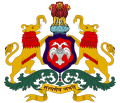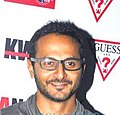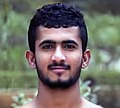Ethnic group
| Regions with significant populations | |
|---|---|
| India | |
| Languages | |
| Kodava language |
The following is a list of prominent Kodavas (also known as the Coorg or Coorgi community).
This is a dynamic list and may never be able to satisfy particular standards for completeness. You can help by editing the page to add missing items, with references to reliable sources.




















